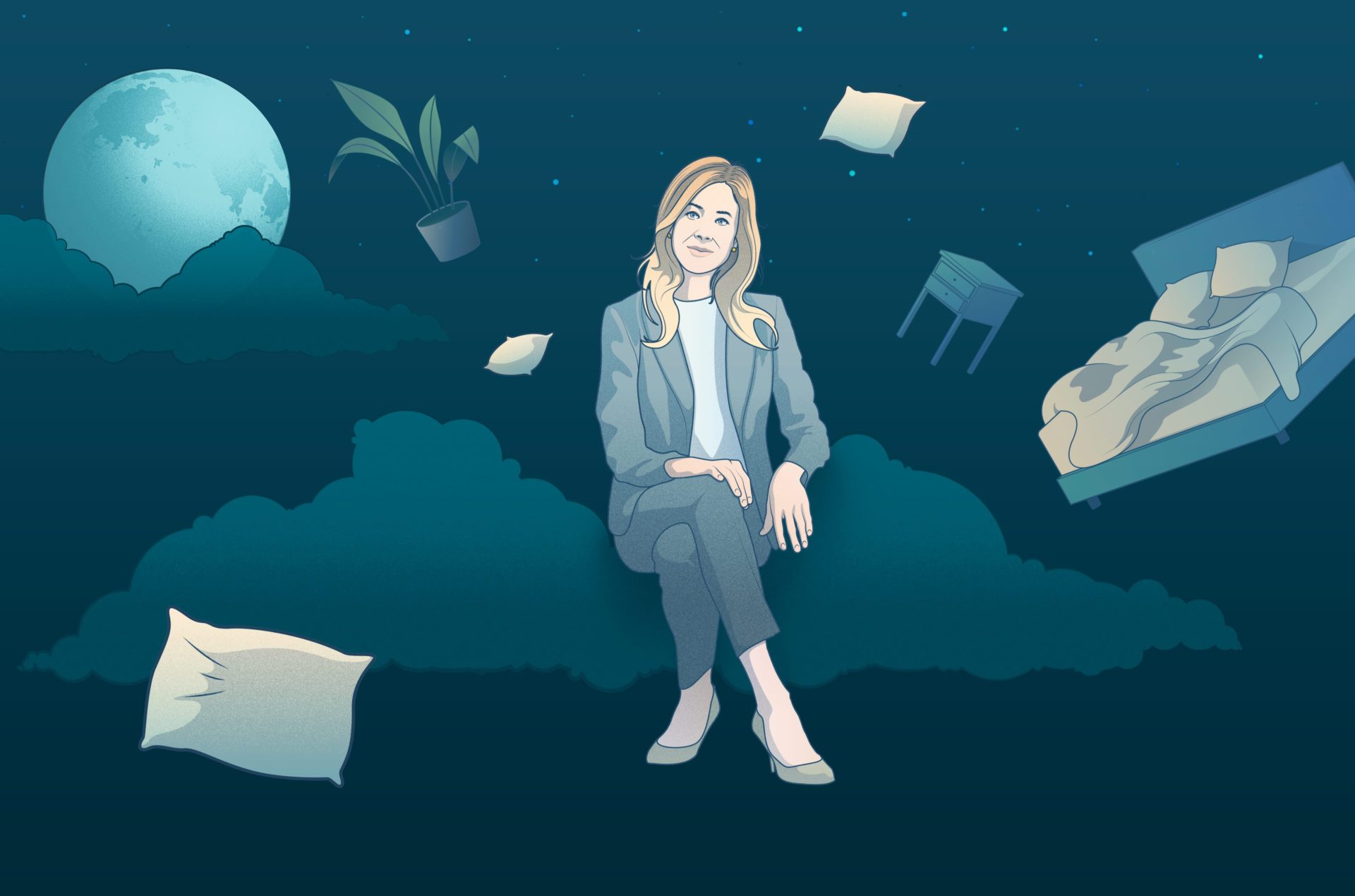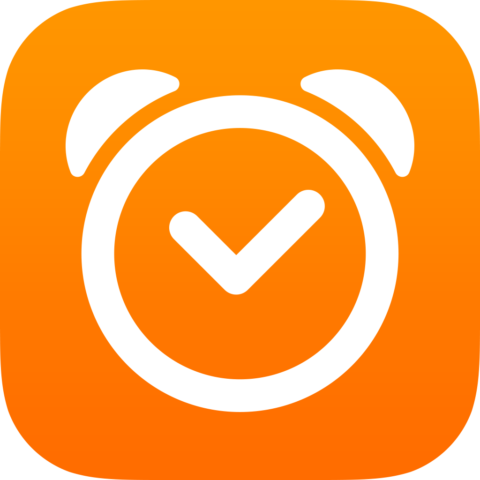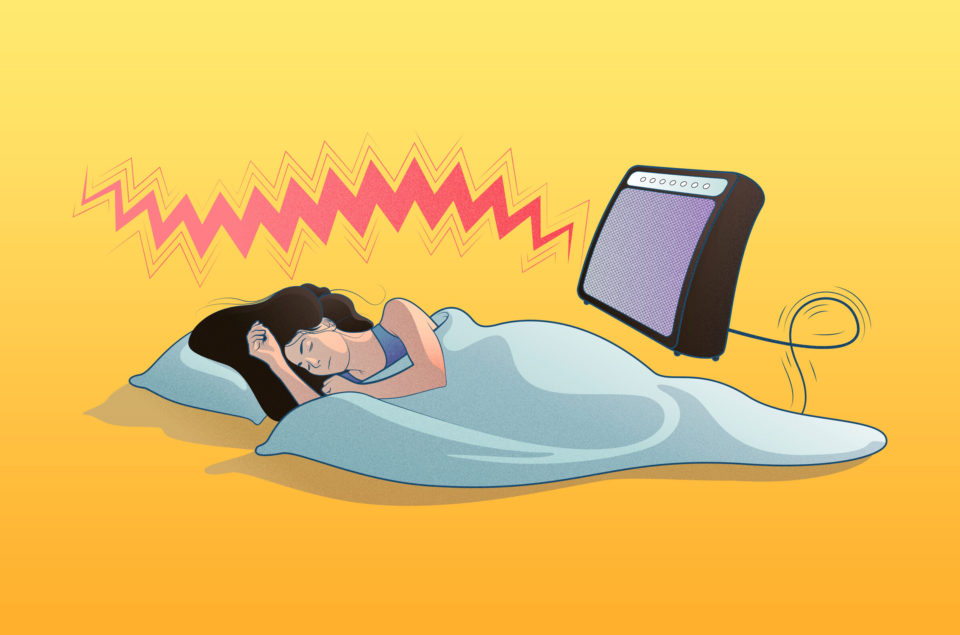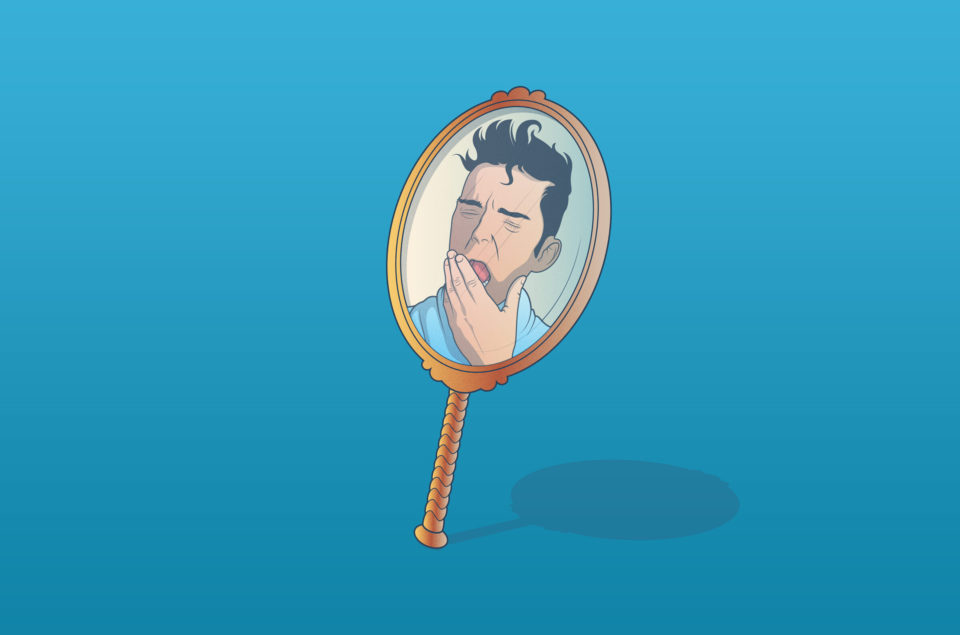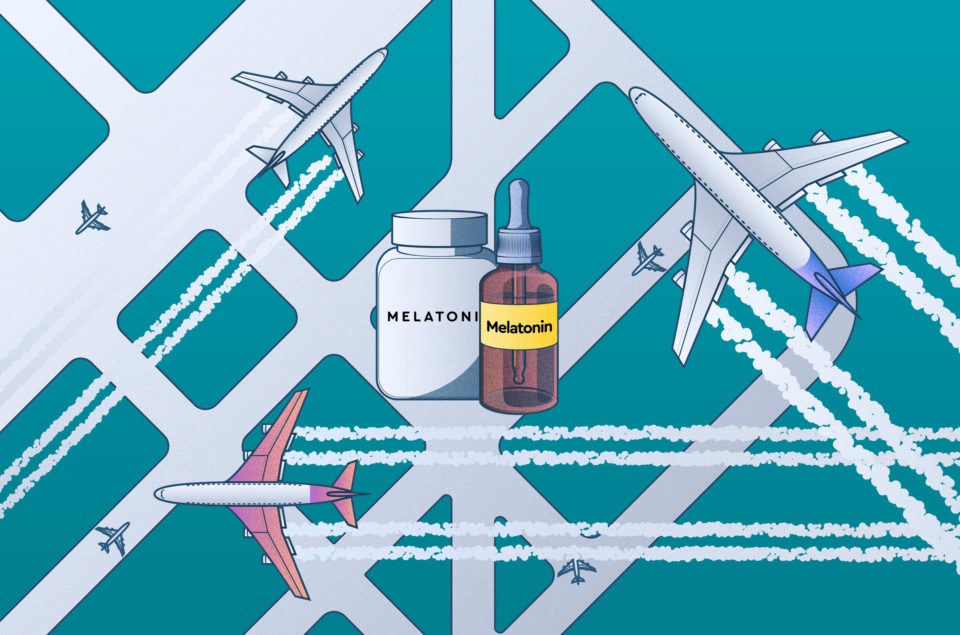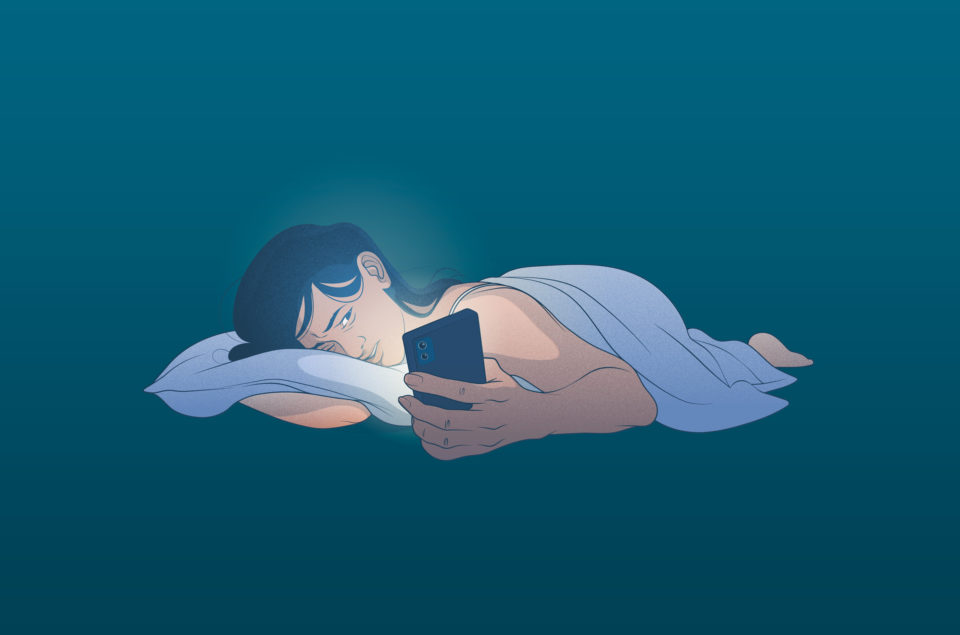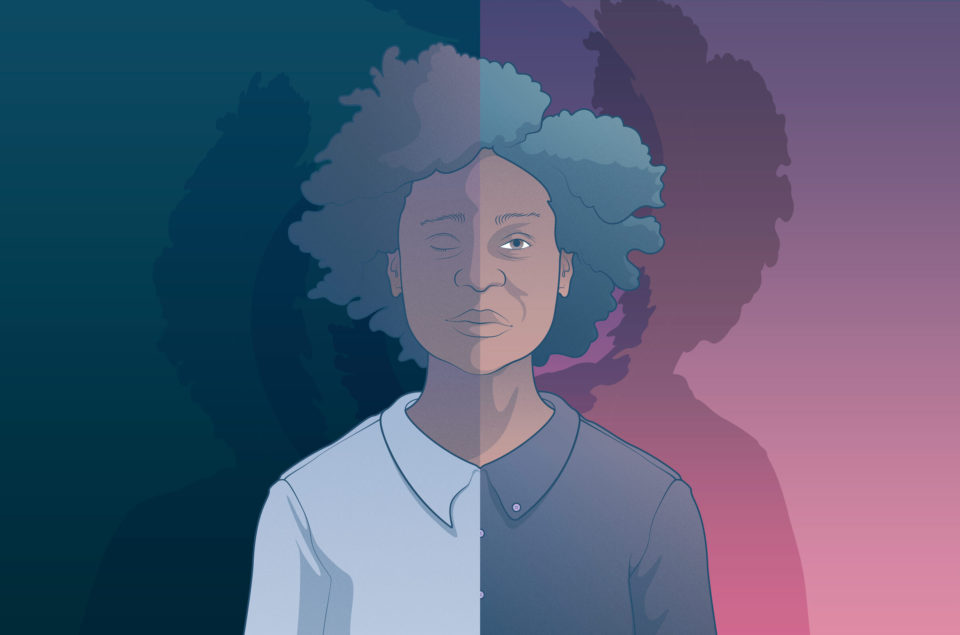Dr. Rebecca Robbins is a renowned sleep researcher, author, spokesperson and Postdoctoral Fellow at Brigham and Women’s Hospital and Harvard Medical School. She recently partnered with Sleep Cycle on our report, Sleep and Mental Health Amidst the 2020 Coronavirus Pandemic. We sat down with Dr. Robbins to learn how she became interested in the field of sleep science, what motivates her work, and to learn more about her personal sleep journey.
Q: How did you get into the field of sleep science?
I was very much a nerd and wanted to get a PhD in something health related. I took a Psychology class in college and was amazed by some of the sleep studies that were covered. One night of sleep deprivation is profound in terms of reduced cognitive ability, physical and mental well-being. But when you can turn that around, when you can help people with good sleep, it has multiplicative benefits in so many areas. So that, to me, seemed like an area of health that was exciting because neuroscience was involved.
There’s this famous quote from American psychiatrist Allan Hobson that sleep is, “of the brain, by the brain and for the brain.” But it’s also of the body and for the body as well. Sleep uniquely impacts every part of our body and being, and I became enamored. It was also relatively new compared to other more established fields like cardiology or internal medicine. We’ve had a huge uptick in the last decade or two in sleep science which makes it an exciting place to be.
Q: What do you find most fascinating about the field?
Sleep is such a tremendous equalizer, and that, to me, is fascinating. But it also can be a source of injustice and inequalities if you live in a low-income, under-resourced community, where you’re going to have more noise, more crime, and less ability to sleep. There is growing evidence to show the relationship between sleep, community and environment, and subsequent adverse outcomes. We have this hunch that more sleep is one of the driving forces of some inequalities at a neighborhood level. If we change that and improve sleep, particularly in our lower-income, under-resourced communities, it can be so powerful for all of us.
Q: In your day-to-day experience, do you notice a difference on mornings when you haven’t had a good night’s sleep?
The dirty secret is it’s not every night that I get a great night’s sleep because, truly, sleep is a function of what we do over the course of the day. All of us encounter stress — it’s a fabric of our everyday life —and how we deal with it impacts our sleep. That being said, even if you have great stress management strategies, things will happen that make sleep more challenging.
We’re all affected by this pandemic. Sleep is one of the first things to go when we’re not feeling our best, or when we feel afraid, attacked or if something unfavorable happened that day. The good news is we have tools that we can use. I do try to practice what I preach. If I had something tough during the day, I’ll be extra attentive with my bedtime routine (take a warm shower, read a book, really unplug, put my phone in Airplane Mode).
One thing I’m diligent with is getting out of bed as soon as I start to toss and turn. It’s one of my mottos. We always want to keep bed as the place where sleep happens, and if you’re tossing and turning, that is antithetical to the objective, which is sleep. Go into the other room, meditate, do a few yoga poses, and try again. If I haven’t slept well and feel sleepy, I also try to go outside to get some fresh air or take a nap that day. Sometimes, I have to bump my cognitively heavy tasks to the next day if I feel the fogginess of sleep deprivation.
Q: Is there any area of sleep research you think needs more attention?
One of my passions is uncovering the levers for all of us in terms of healthy sleeping. If someone isn’t getting enough sleep, what do they need? Do we need to script the path for them? Do we need to give them an educational session? Do we need to scare them a little bit? Sometimes people do need to be a bit scared into change.
My life’s work is finding those different levers for different populations. A lot of my work is with chronic disease patients, particularly individuals with high blood pressure. I’m really interested in the link between sleep and our ability to maintain a healthy blood pressure. Blood pressure actually dips to its lowest point at night and we need that natural dipping. If you’re not sleeping enough, if your blood pressure is out of control, sleep can be a great antidote. Uncovering things like that and designing cool ways to help people fall in love with sleep is my life’s work.
Research on the brain and sleep is also fascinating when you consider all the things that happen in the brain over the course of the night. It’s common for people to think that when your head hits the pillow, you’re out. Wrong. There’s so much happening in the brain during sleep. It is very nuanced throughout the night — it’s not a monolithic process. To the contrary, it’s a really rich process. In some stages, our body and our brain are completely quiet, not moving, no activity, and in other stages, there’s actually as much or maybe even more activity in the brain than when we are awake.
Q: Have you always been comfortable with data and numbers?
Science class was always my favorite when I was young, so I was definitely drawn to the area from a very young age. But I’m also a people person. I get a lot out satisfaction from working with people, and I’m excited to use science and data for the good. I’m in research because I get to ask cool questions and find solutions.
Q: What motivates you to discover new things about sleep in your research?
To help people. That’s what gets me out of bed in the morning. It really fuels me when people tell me, “that little tidbit helped me,” or “I’ve been struggling my entire life and was able to change or make a dramatic difference overnight.” When we can find the right levers of change for different individuals — that to me is why I’m here. I’m very lucky.
Q: Do you see individual patients?
No, I don’t. That’s why I’m so passionate about science communication because I can get our research out there. I love my collaboration with Sleep Cycle because we can combine things like evidence-based medicine, tips and strategies to a huge audience.
Q: Have you ever personally overcome a sleep problem?
I’m in this field because it is personally relevant. I was a zombie through my entire high school/college career. I loved school and extracurriculars, I was super involved in my community, and I never got good sleep. There was always more I wanted to do, but I could never power down my brain. My sleep education was limited to what my mom taught me because it’s not really covered in school. I remember being so sleep-deprived in college, sitting in a fog and not able to retain information. I almost hit a wall. Then I took a Psychology class that looked at sleep studies and I was intrigued.
Even early on in my career, I thought of sleep as something I could study, but not something I could ever achieve personally. This is, until I attended a meditation training. I had just lost my grandfather who was very special to me and I couldn’t continue my PhD program for the summer because I was so burnt out. So, I left, went to New York City instead of staying on campus all summer, and I did an intensive meditation program. Finally, I learned how to quiet my mind. I tell people that story because I remember saying “I can’t meditate…” and I hear that so often, but it’s actually the whole point. None of us are ever really supposed to be good at meditating, but I am a big proponent of it. I came to it because of my poor sleep habits as a young girl and college student.
Q: What do you do for fun?
I love cooking! Science is very long-term, and I’m not able to reap the benefits of my work until months, maybe years later. You submit a paper, and it’s usually around six months until you hear from a journal and then it’s another six months before publication. Cooking gives me a tangible thing that I can create and be done with, which is very satisfying. I love to make cookies or a delicious dinner for my family. I also love exercise, hiking and being outdoors.
